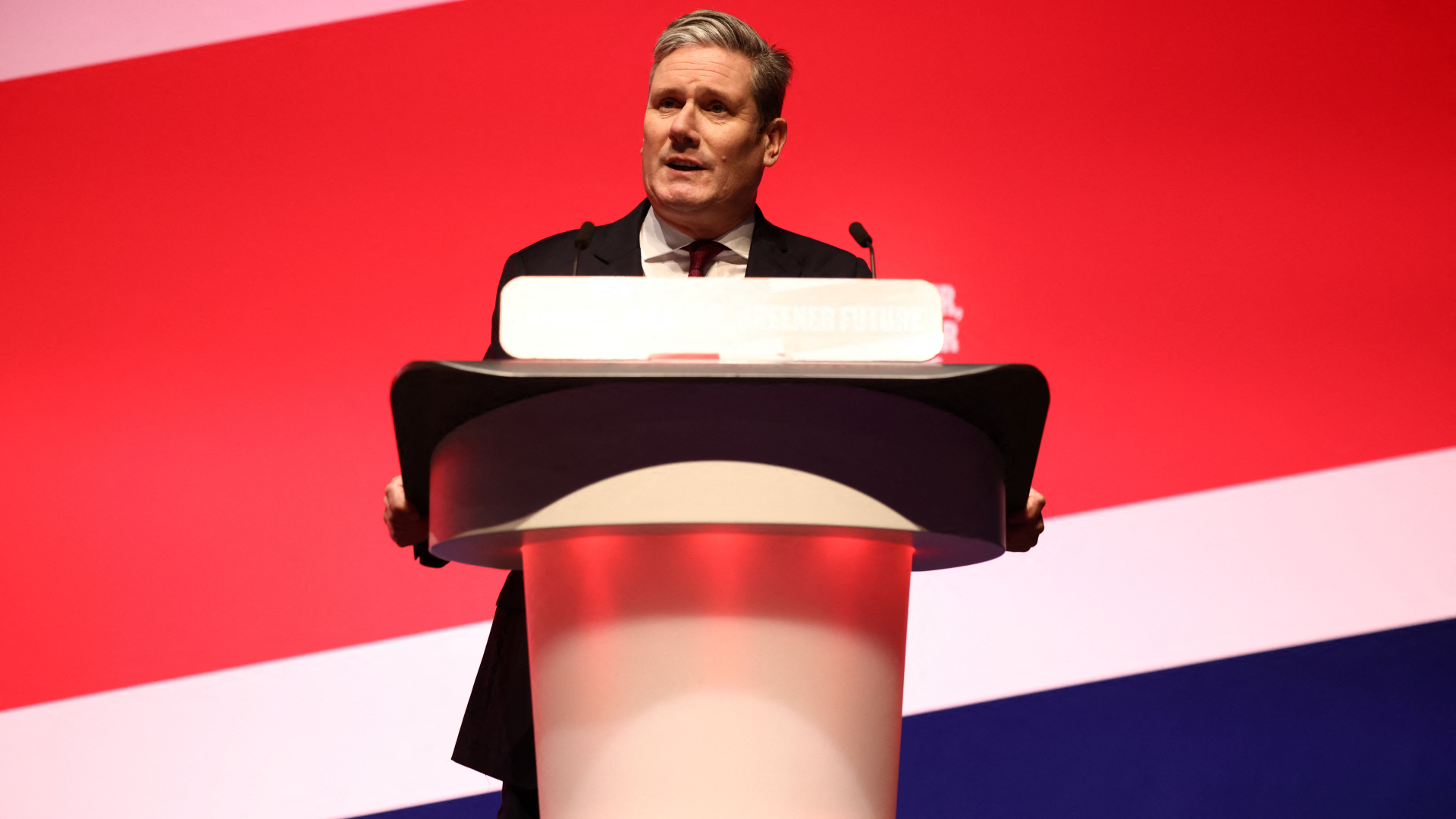From the Government’s big mini-budget to Labour’s big lead: A defining week for UK politics and public affairs – Part 2

Part 2 of our review of a defining week in UK politics, which will have significant impacts for businesses in Energy and Industrials, Tech, Capital Markets and Financial Services.
Part 1 can be found here.
Labour’s turn in the spotlight
While Liz Truss and Kwasi Kwarteng’s mini-budget was making waves and upending markets, the Labour Party was holding its annual conference in Liverpool, and enjoying a political windfall.
Two years on from Keir Starmer’s election as Labour leader, he finally feels ready to present his priorities to the country. His first year as leader (including his first party conference in 2021), was consumed with fixing the party itself, to consign the influence of Corbynism firmly to the past – which involved a series of internal political battles that are largely impenetrable to outsiders.
But that work appears to have paid off: the bitter rows of recent years were nowhere to be seen, Corbyn and his followers had lost all relevance, and Labour’s attention had turned its attention away from internecine disputes, and toward the country.
In political terms, it was a very good conference for Labour. Labour was presented with a gift in the form of the Government’s politically disastrous mini-budget. However, Labour have also created some of this advantage themselves. At the conference Labour talked up its fiscal responsibility, and began to set out an alternative idea of how growth is created – with an industrial strategy that supports sovereign capabilities, world-leading industries and clean energy.
By the close of the conference, most attendees had little doubt in their minds that Starmer would be the next Prime Minister. Labour leaves its conference as a party looking united and confident – which counts for a lot.
Voters also seemed to like what they saw from Starmer’s party. Labour was already consistently leading the Conservatives with leads in opinion polls in the high teens or greater, which would translate to Labour leading the next government. But following Labour conference several pollsters started to detect poll leads in the mid-thirties – the kind of gap not seen since the late-90s when Tony Blair was Prime Minister-in-waiting. Poll leads of this scale would translate into a thumping General Election victory for Labour, with an outright majority in Parliament that avoids the need for any tricky deals with the SNP or Lib Dems. While the polls are likely to tighten again, the is now a sense of inevitability around a Starmer-led Labour Government.
What have we learned?
As we get into the meat of Conservative Conference this week, it’s worth thinking about what has been learned from Labour’s own conference. Here are some key lessons and observations:
- Labour is going after Tory territory: Labour now has the confidence to challenge the Conservatives on their home turf: economic growth. This is a change. Labour normally focuses on ‘heart’ questions of fairness and distribution, while the Conservatives normally focus on ‘head’ appeals around growth and efficiency – with predictable results. But rather than the tax-cuts and deregulation favoured by Liz Truss and Kwasi Kwarteng, Labour’s message on growth is based around supporting green industries, industrial strategy, and fiscal responsibility and certainty.
- Say less, but more often: Rather than setting out piles of detailed new policy, Starmer and the Labour front bench have painted their vision in broad strokes, with a few big-ticket announcements rather than lots of little ones. Labour’s new flagship policy, a publicly-owned state energy company called ‘Great British Energy’, signified that broad economic vision: green, economically nationalist, and with Government taking an active role in partnership with business (rather than Corbynist hostility to business, or Trussian deregulation).
- Labour thinks the UK can still lead the energy transition: Painting a picture of a ‘clean energy superpower’, Keir Starmer and the shadow climate change secretary, Ed Miliband, think there is still a chance for the UK to lead the world in clean technologies including offshore wind, hydrogen, CCUS, and green steel, and that these industries will be crucial, not only to the Net Zero agenda, but also to the UK’s economic success.
- Labour is has found a comfortable position on public ownership: Since Starmer’s election as leader, there has been tension in the party over nationalisation of key industries, including ‘rail, mail, water and energy’, which was a signature policy under Corbyn. But nationalising large parts of the economy just isn’t that important to Starmer, who recently ruled out nationalising North Sea oil and gas. However, at Labour’s conference last week, the party recommitted to ending privatised rail franchises, and its flagship announcement was the launch of a publicly-owned ‘Great British Energy’ company, in a similar model to state-owned energy companies like EDF and Vattenfall. Rather than a direct threat to business, this state energy company is being framed as a partner to business, absorbing the greatest risks on big energy projects in order to crowd-in private investment. Despite pressure from some trade unions however, there’s nothing about the announcement that indicates this will lead to a wider spree of nationalisations.
- The inheritance is worrying: Beyond the journey to Government, the thing that worries Labour frontbenchers now is the state of the economy they expect to inherit from the Conservative government. Labour’s shadow ministers become quite circumspect when asked what the high cost of borrowing will mean for investments in green energy, infrastructure and technology. A lot of responsibility is being placed on the shoulders of the Shadow Chancellor, Rachel Reeves, to reassure financial markets and bring down those borrowing costs, so that a Labour government is not fiscally and economically hamstrung the moment it enters government.
Dan Hogan is Aspectus’ Public Affairs Lead. He is at Conservative Conference this week, gathering insight into key policy areas affecting Energy and Industrials, Tech, Capital Markets and Financial Services, and spending time with the key decision makers whose choices affect your business. If you want to know more about how Aspectus’ Public Affairs team can help you, get in touch.
Related News
-

Getting AI to train your spokespeople
June 27, 2025 -

25 years of TradeTech – the good, the bad and the road ahead
May 19, 2025